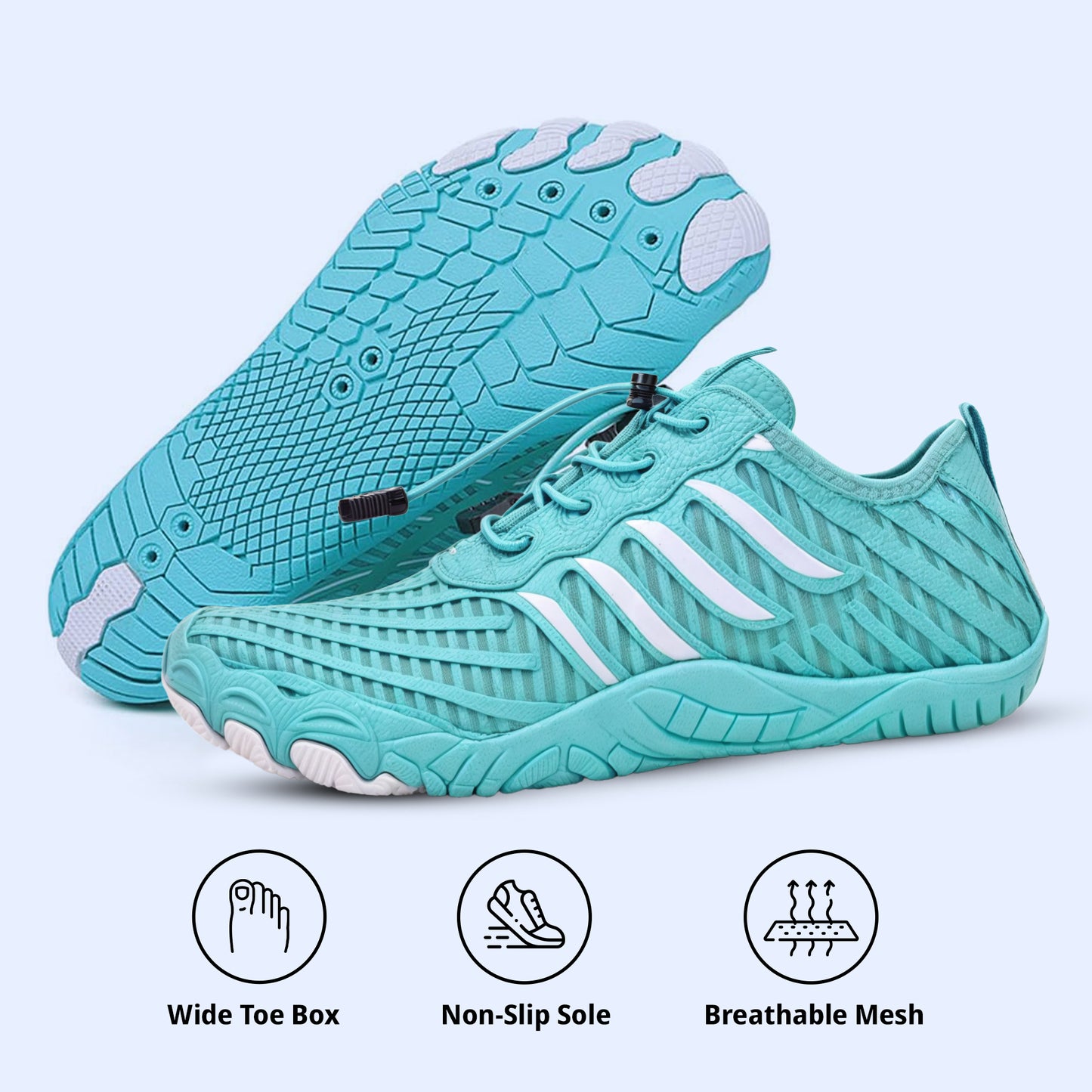Non-Slip Barefoot Shoes for Healthy Feet (Unisex) + FREE Shoe Cleaning Brush
Non-Slip Barefoot Shoes for Healthy Feet (Unisex) + FREE Shoe Cleaning Brush
✔️ Experience barefoot feel with ultra-thin soles
✔️ Wide toe box gives toes space to relax







Hurry up! Only 5 items left in stock.
Couldn't load pickup availability














-

Barefoot Comfort
-

Wide Toe Box
-

Non Slip
-

Thin Sole
Customers Love Our Shoes!












Move Naturally with the Best Barefoot Shoes in Australia
Most shoes restrict movement, leading to stiffness and discomfort. These Aussie barefoot shoes are designed to let your feet move freely – like walking barefoot – while providing lightweight support. The flexible 4mm sole makes them ideal as barefoot running shoes in Australia, barefoot runners, or everyday grounding shoes that promote natural alignment and ease strain on knees, hips, and back.

Freedom for Your Feet
✔️ Airy & Soft– Breathable design keeps feet cool and irritation-free
✔️ Supports Natural Motion– Perfect for those seeking barefoot sneakers or barefoot running sneakers to encourage healthy movement
✔️ Everyday Comfort– Ideal for long walks, light running, or casual wear
✔️ Spacious Toe Area– Designed like five finger shoes for enhanced flexibility and toe splay
✔️ Wide Fit Option– Great for those searching for wide men’s shoes in Australia

Unrestricted Comfort with Aussie Barefoot Footwear
Crafted from premium materials, these shoes blend comfort, performance, and minimalist style. Whether you call them barefoot footwear in Australia, bared footwear, or grounding shoes, they provide a natural walking feel for errands, workouts, or all-day wear. A top choice for anyone seeking the best barefoot shoes in Australia.
What Our Customer Say...
Over 100k+ happy customers are loving our barefoot shoe collection!

30-Day Money-Back Guarantee
We offer a 30-day money-back guarantee to all our buyers. We promise that if there are any problems during the 30-day, we will provide a solution in good faith and a refund, if applicable within the eligible time period as per our policy (Refer to our Terms and Conditions).
FAQ's
What are the shipping charges and how long does shipping take?
Standard deliveries are FREE and take 7-14 working days. Express shipping is available for $6.99 and typically arrives within 5-10 working days.
What is your return policy?
We offer a 30-day return policy from the date of purchase. Items must be in their original condition and packaging. Please contact our customer service to initiate a return.
Do they have a grip on slippery surfaces?
Oh, absolutely! These have a non-slip sole with killer traction, so whether it’s a wet sidewalk or an uneven trail, you’re covered.
Can I wear them for running or workouts?
100%! They’re flexible, grippy, and move naturally with your feet, making them perfect for running, gym workouts, yoga, or even just walking around town. Basically, they’re your all-in-one shoes
Are they good for standing all day?
Yes! If you’re someone who’s on your feet all day (work, errands, chasing kids - whatever it is), they help to reduce fatigue and support natural foot posture so your feet don’t hate you by the end of the day.
Are barefoot shoes good for seniors?
For sure! They help with balance, strengthen foot muscles, and let your feet move naturally. That means less strain and a lower chance of slipping which is a huge win.
Can I wear them without socks?
Totally your call! They’re super breathable and designed for a sock-free feel, so if you wanna go all-in on the barefoot experience, go for it. But if you prefer socks, that works too.


















